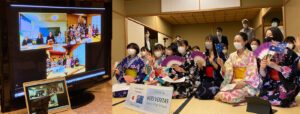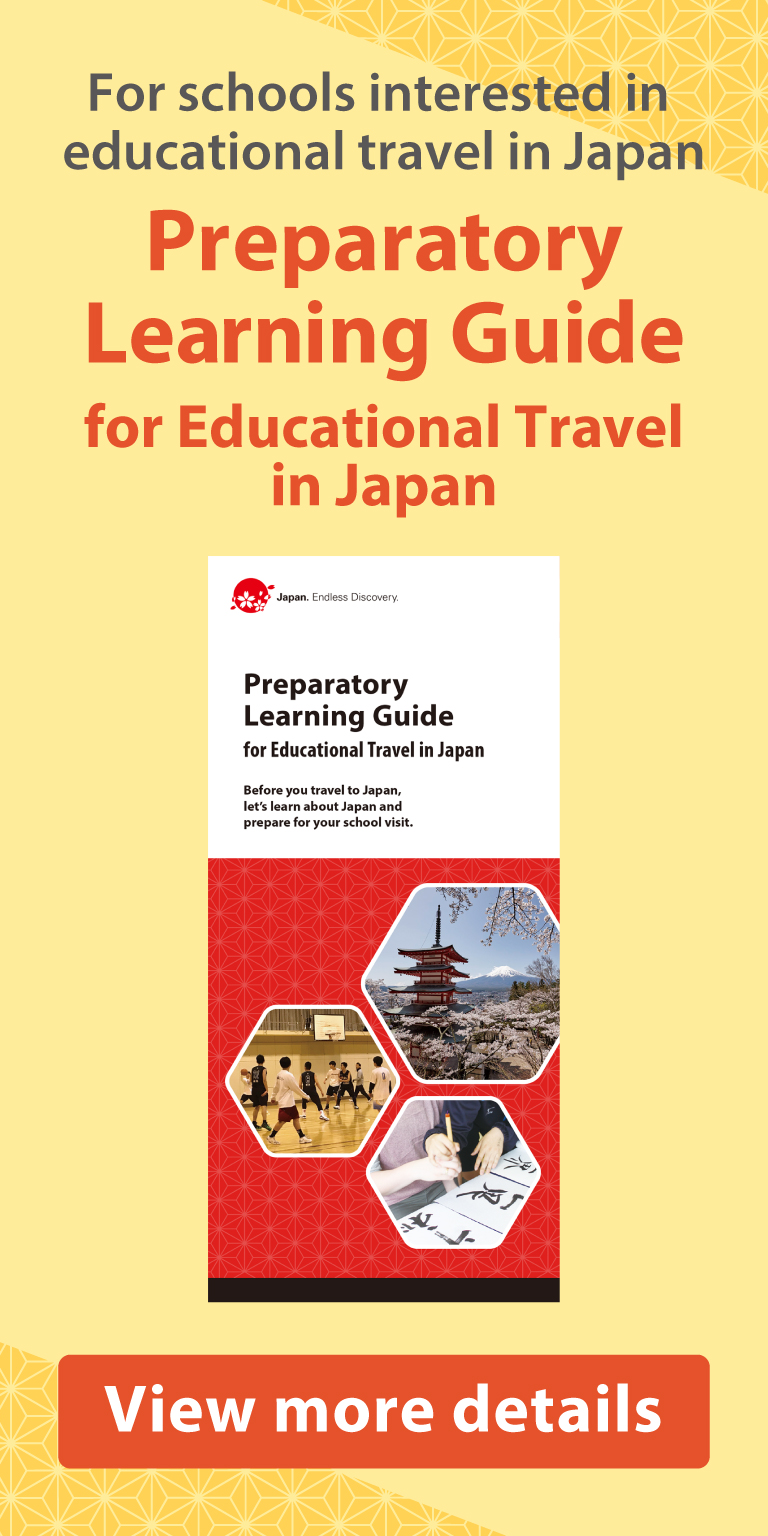School exchanges for educational travel in Japan
Many schools while on educational travel in Japan have engaged in exchange programs with schools all around Japan. There are a wide range of school exchange programs which can meet a variety of aims such as cross-cultural communication, language learning, sports or art exchange, and more. Read more about school exchanges in Japan.location_cityExamples of Exchange Programs
There are two types of school exchanges: “In-Person School Exchange,” which is where a student physically goes to the school, and “Online School Exchange,” which is where students interact with the partner school via the internet. There are various different programs for each of these exchange types.
IN-PERSON EXCHANGE




ONLINE SCHOOL EXCHANGE




location_cityBenefits of School Exchange
1Increasing Learning Motivation
By paying a visit to a Japanese school and experiencing a foreign educational system. Students will be able to explore things in a new environment and a different culture. This will in turn lead to increased student motivation to learn. Thomas Fuller once said, “He that travels much knows much.” Traveling is always a great opportunity to learn more in a pleasant way.2Deepening the Understanding of Japanese Culture
Students can actually learn more about Japanese culture through interactions with Japanese students. When encountering a foreign culture, one can always recognize the similarities and differences between the foreign culture and one’s own. It may also be a wonderful opportunity to think about the characteristics of one’s country, and things worth cherishing.3Acquiring a Global Perspective
By meeting Japanese students of the same age, students have the chance to encounter values that are new to them, and this can foster in them a global perspective. This will deepen the students ability to thing from various angles, something essential for understanding the world.4An Inspiring, Engaging Japanese-Learning Environment
The best way to master a foreign language is to go to a country where the language is spoken. For students learning Japanese, it is an excellent opportunity to exposed to and learn authentic living Japanese.location_cityJapanese Educational System
The Process of School Exchange
 swap_vertLocal Government Tourism Bureau
Education BureauMatching up Schools
swap_vertLocal Government Tourism Bureau
Education BureauMatching up Schools
How to Arrange a School Exchange?
JNTO collaborates with local governments to support school exchanges during educational travel in Japan. After deciding the date and destination of visit as well as completing bookings of flights and accommodation, please contact JNTO to apply for a school exchange. We will assist with visiting and host school matching and introducing you schools which meet your needs.*JNTO is a tourism organization. We do not offer individual exchange programs.
location_city Important points of school exchange
check_box Please start to find a host school for school exchange as soon as possible.
Although the matching depends on schools and their locations, it takes about one or two months on average. We will stop accepting applications two months before the day of school exchange. Please ensure to start the process of finding a host school at least 3 months before your visit. Also, confirmed reservations for flights and accommodation are required when applying for a school exchange. Since schools in Japan tend to arrange their schedules for the following school year during December-March, we advise you to aim for that period and start planning as soon as possible.check_box The difficulty of matching with a host school varies from period to period.
The difficulty of matching depends on schools and their locations. In general, October and November exchanges are the easiest for matching. It may take a longer time during the turn of the academic year (March – April), during the summer vacation (July – August), and during the New Year holidays (late December – early January).check_box Please refrain from cancelling once the host school has been decided.
To avoid any inconvenience to host schools, please refrain from any cancellation without a valid reason once the match is determined. For the same reason, multiple applications for different host schools at the same time are also not allowed.Visitor’s voices: Impressions of educational travel and school exchanges in Japan

Experinces of students and teachers who have participated in educational travel and school exchanges in Japan.









